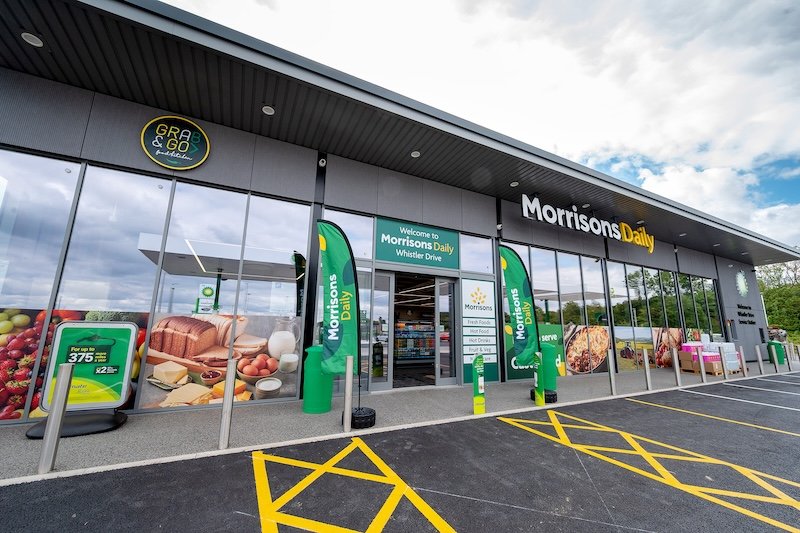The crypto arena: trading platforms deciphered
Welcome to the exhilarating world of cryptocurrency, where digital assets are bought and sold within the blink of an eye. In this thriving landscape, choosing the right trading platform can make all the difference in maximizing profits while minimising risks.
Our comprehensive guide on "The Crypto Arena: Trading Platforms Deciphered" is tailored for traders just like you – diving deep into centralised, decentralised, and hybrid platforms along with their unique features and offerings from user interfaces to security measures.
Additionally, we explore ways to optimise profits via innovative tools like Oil Pro, ensuring you stay ahead in this dynamic market.
Understanding the crypto trading landscape
There are three main types of crypto trading platforms: centralised, decentralised, and hybrid.
Centralised Platforms
Centralised platforms are the most common type of cryptocurrency exchanges, offering a unified and user friendly environment for traders to buy, sell, and manage their digital assets.
These platforms operate with a central authority managing transactions and order matching while ensuring account security.
These exchanges provide an array of features that cater to both novice and experienced traders alike. For instance, they usually support various trading pairs – allowing you to trade Bitcoin against other cryptocurrencies or government-issued currencies like USD or EUR.
Many also offer advanced trading tools such as charting software for technical analysis and crypto trading bots designed to automate particular strategies based on predefined parameters.
Decentralised Platforms
Decentralised platforms are gaining popularity in the crypto trading landscape, offering a more democratic and secure way to trade cryptocurrencies.
Unlike centralised platforms that rely on a single entity to hold funds and make trades on behalf of users, decentralised platforms use blockchain technology to enable peer-to-peer transactions without intermediaries.
Examples of decentralised platforms include Uniswap and PancakeSwap. Decentralised platforms often have lower fees and offer more privacy since users retain control over their own assets.
It's important for traders to assess their goals carefully when choosing between centralised or decentralised platforms for cryptocurrency trading. Some traders prefer the ease of use and enhanced security measures offered by centralised exchanges like Binance or Coinbase; others see the potential benefits of decentralisation despite its challenges.
Hybrid Platforms
Hybrid platforms in the world of cryptocurrency trading are an increasingly popular option for traders who want the flexibility to choose between centralised and decentralised exchanges.
One example of a hybrid platform is Crypto.com, which offers both traditional fiat-to-crypto trading pairs as well as crypto-to-crypto pairs. This allows users to easily convert between cryptocurrencies without having to transfer funds out of the exchange.
Additionally, Crypto.com offers high liquidity, low fees, and a user friendly interface that makes it easy for beginners to get started with crypto trading.
Popular crypto trading platforms
Binance, Coinbase, Kraken, Bitfinex and Crypto.com are among the most popular crypto trading platforms available for investors.
Binance
Binance is a popular centralized cryptocurrency exchange platform that was founded in China in 2017. It has since moved its operations to Malta due to regulatory concerns and now offers trading services for over 100 cryptocurrencies.
Binance also launched its own native token, BNB, which can be used to pay transaction fees on the platform with a discount. The user interface features a wide array of trading tools and charts, including support for advanced trading strategies like margin trading, futures contracts, and options.
Security measures include two-factor authentication and anti-phishing codes to protect users from hacking attempts.
Coinbase
Coinbase is a popular centralised crypto trading platform that has been around since 2012 and boasts over 56 million registered users worldwide.
The platform offers support for several top cryptocurrencies, including Bitcoin, Ethereum, and Litecoin, as well as various trading pairs with traditional fiat currencies like USD and EUR.
Coinbase's user interface is clean and easy to navigate, making it a good choice for beginners who are just getting into the world of cryptocurrency trading. The platform also offers robust security measures such as two-factor authentication and insurance against any potential breaches or hacks.
However, traders should note that Coinbase's fees can be relatively high compared to other exchanges in the market.
Kraken
Kraken is a US-based cryptocurrency exchange that was founded in 2011. It is known for its advanced trading features and powerful API, making it a popular choice for experienced traders.
Kraken offers over 70 cryptocurrencies, including Bitcoin, Ether, and Dogecoin, as well as fiat currency trading pairs like USD and EUR.
Security is also paramount at Kraken - the exchange boasts two-factor authentication (2FA), cold storage for funds not actively being traded on the platform, regular security audits by outside firms, and one of the highest insurance policies in the industry.
Trading fees are competitive compared to other exchanges with low maker-taker fees starting at 0.16%, depending on volume traded per month.
Bitfinex
Bitfinex is a popular crypto exchange that was founded in 2012 and is headquartered in Hong Kong. The platform provides traders with access to over 100 cryptocurrencies, including Bitcoin, Ethereum, Litecoin, and Ripple.
Bitfinex offers both spot trading and margin trading options for its users, with up to 5x leverage available on some pairs.
Bitfinex has faced some controversies in the past including a security breach that led to the loss of millions of dollars worth of cryptocurrency in 2016; however since then they have invested heavily into their security measures as well as offering insurance covering all deposits on the exchange.
Despite these challenges Bitfinex remains one of the most trusted names in the crypto space, attracting seasoned investors as well as amateurs looking for an easy way to start investing in digital assets.
Crypto.com
Crypto.com is a major player in the cryptocurrency trading platform industry, offering a range of services including an exchange, mobile wallet, and debit card.
The company has made headlines recently by purchasing the naming rights for the Staples Center in Los Angeles, which is now officially known as the Crypto.com Arena.
With over three million users and partnerships with major sports organisations like the UFC and Formula One racing team Aston Martin Cognizant, Crypto.com is positioning itself as a leader in promoting the adoption of cryptocurrencies.
It's worth noting that despite this high profile move into mainstream branding, many crypto traders are drawn to Crypto.com for their low fees and wide selection of supported coins like Bitcoin, Ether and Litecoin.
An in-depth look at trading platform features
We will examine the different features that trading platforms offer, including supported cryptocurrencies, user interface, mobile app availability, security measures and fees/commission structures.
Supported Cryptocurrencies
One key factor to consider when choosing a crypto trading platform is the range of supported cryptocurrencies. The top platforms, such as Binance and Coinbase, typically offer a wide selection of digital assets that can be traded against popular pairs like Bitcoin or Ether.
For example, Crypto.com recently added support for several DeFi tokens like AAVE and Compound in response to rising demand from investors looking to diversify their holdings beyond mainstream offerings.
Meanwhile, Bitfinex has been known to list more niche assets like Dogecoin and Tether Gold alongside major players like Cardano or Polkadot.
User Interface And Trading Tools
The user interface and trading tools of a crypto trading platform are crucial factors to consider when choosing the right one for your needs.
A well designed and intuitive interface can make it easier to navigate through markets, view charts, place orders and manage your portfolio efficiently.
For example, Binance offers an easy to use web-based platform with customisable charting tools and mobile apps that enable traders to access their accounts on the go. Meanwhile, Coinbase's platform offers a simple yet elegant design with comprehensive security features such as two-factor authentication (2FA) and cold storage solutions.
It's important to choose a crypto trading platform that aligns with your investment goals while providing you with all the necessary features required to execute successful trades in today’s fast paced market environment.
Mobile App Availability
Most crypto trading platforms today have mobile apps that allow you to access and manage your accounts on the go. These apps are usually available for both Android and iOS devices and offer similar functionalities as their desktop counterparts, including real-time market data, order management, and portfolio tracking.
For example, Coinbase's mobile app is widely regarded as one of the best in the market due to its user friendly interface and rich set of features. The app lets you buy and sell cryptocurrencies instantly using a variety of payment methods, including debit cards, bank transfers, and PayPal.
However, it's important to note that not all crypto trading platforms have equally good mobile apps. Some might be slower or less reliable than others or lack certain functions altogether.
Security Measures
Security is a top priority for any crypto trader, and it's essential to choose a trading platform that offers robust security measures. Some of the most common security features include two-factor authentication (2FA), anti-phishing measures, cold storage solutions, and multi-signature wallets.
For example, Coinbase has implemented industry leading security protocols such as AES-256 encryption for user data and the use of offline storage for 98% of customer funds.
However, even with these security measures in place, there are always risks associated with cryptocurrency trading. For instance, the FTX scandal highlights how quickly things can unravel when a trading platform doesn't prioritize robust risk management practices.
Ultimately when choosing a crypto trading platform or exchange you must consider their overall commitment towards your safety as an investor by implementing strong cybersecurity protocols backed up by adequate insurance cover.
This will give you an assurance that your digital assets are well secured on their network against online thefts and hacks which could lead you into bankruptcy or scammed out of capital invested into Bitcoin or Ether holdings due negligence issues emanating from inadequate preparation towards cyber attacks by these exchanges/platforms.''
Trading Fees And Commission Structures
Understanding the trading fees and commission structures is a crucial aspect of selecting a crypto trading platform, as it directly impacts your profits and costs as a trader.
Here's a comparison of the fees and commission structures of popular crypto trading platforms:
It's essential to examine the fees and commissions of different platforms, factoring in your trading patterns and the currencies you intend to trade. Keep in mind that some platforms also offer fee discounts based on trading volume or the holding of their native tokens, such as Crypto.com's CRO token.
Choosing the right crypto trading platform
To choose the right crypto trading platform, assess your trading goals, evaluate reputation and reliability, consider customer support, and manage risks and challenges.
Assessing Your Trading Goals
To choose the right crypto trading platform, you must first assess your trading goals.
For example, if you’re an active trader who wants access to advanced tools and market analysis, Binance might be the best option. On the other hand, if security is of utmost importance because you’re dealing with larger amounts of capital, Coinbase could be the better choice since it has stringent security measures in place.
Remember that different platforms specialise in different things - some are more focused on providing low fees while others concentrate more on offering extensive selection offerings.
Evaluating Reputation And Reliability
When choosing a crypto trading platform, evaluating the reputation and reliability of the exchange is crucial. You want to ensure that your investments are safe and secure from hacking attempts or potential fraudsters.
One way to assess an exchange's reputation is by checking online reviews and forums where people share their experiences with different platforms.
Another factor to look at when evaluating a trading platform's reliability is its security measures, such as two-factor authentication and cold storage for users' funds.
The recent renaming of Staples Center to Crypto.com Arena highlights how rapidly this industry can shift.
Considering Customer Support
One crucial factor to keep in mind when choosing a crypto trading platform is the quality of customer support. Since dealing with cryptocurrencies can be complex and confusing, having access to knowledgeable and helpful support staff can make all the difference.
Look for platforms that offer multiple channels for contacting customer service, such as email, chat, or phone.
For example, Crypto.com has received praise from users for its responsive customer support team and extensive help center. They also offer 24/7 live chat support through their mobile app and website.
In contrast, the FTX scandal highlighted the risks of using an exchange with inadequate customer service - many users were left stranded when they couldn't access their funds after the company declared bankruptcy.
Managing Risks And Challenges
As a crypto trader, managing risks and challenges is crucial to your success. One of the main challenges in the cryptocurrency trading space is the lack of regulation, which can lead to increased volatility and uncertainty.
Another key challenge when it comes to crypto trading is security. With high profile hacks and breaches making headlines on a regular basis, it's important to choose a platform with robust security measures in place.
Finally, it's essential to have a solid understanding of market trends and technical analysis techniques so you can make informed trading decisions.
The recent FTX scandal serves as an example of why carefully managing risks is critical in this space.
Latest developments in the crypto arena
The recent bankruptcy of FTX and the renaming of the Staples Center to the Crypto.com Arena have drawn attention to the challenges and opportunities in crypto trading platforms.
The FTX Collapse And Its Implications
The recent bankruptcy filing by FTX, the third-largest centralised cryptocurrency exchange, has sent shockwaves across the crypto community. The founder of FTX is facing criminal and civil charges and is going to trial.
This incident highlights the risks and challenges involved in operating a cryptocurrency exchange, especially in today's regulatory environment.
It's important to note that not all trading platforms are created equal. Some have stronger reputations than others while some offer more comprehensive features or better fees structures.
For instance, Crypto.com claims to have over three million users and has been expanding its services and partnerships lately with a deal with UFC or buying naming rights for venues like Staples Center (now renamed Crypto.com Arena).
The Crypto.com Arena's Renaming And Upgrades
Crypto.com, a leading cryptocurrency exchange and mobile wallet provider, has made an unprecedented move by purchasing the naming rights for the Staples Center in Los Angeles at a cost of $700 million.
Now officially called the Crypto.com Arena, this multi-purpose indoor arena is located near popular entertainment complex L.A. Live making it a hotspot for visitors to Southern California.
The success of Crypto.com's recent partnerships with sports leagues like UFC and Formula One indicates that more businesses are willing to embrace digital assets as part of their branding strategy.
However, concerns have been raised about the risk of falling prey to the "stadium curse," where teams fail to meet expectations after renaming their home stadiums.
Other Major Players In The Crypto Trading Platform Industry
Apart from the popular crypto trading platforms mentioned earlier, here are other major players in the industry:
Huobi - Founded in China in 2013, Huobi is a global cryptocurrency exchange that supports over 200 cryptocurrencies and has a presence in over 130 countries.
KuCoin - Established in 2017, KuCoin is a Singapore-based cryptocurrency exchange that offers spot trading, margin trading, futures trading, and staking services.
Bitstamp - Launched in 2011, Bitstamp is one of the oldest and most reputable cryptocurrency exchanges in Europe. It supports fiat-to-crypto and crypto-to-crypto trading pairs.
Gemini - Founded by the Winklevoss twins in 2014, Gemini is a New York-based cryptocurrency exchange that offers trading services for Bitcoin, Ether, and other cryptocurrencies.
Kraken - Founded in 2011 and headquartered in San Francisco, Kraken is one of the largest cryptocurrency exchanges globally serving users from over 190 countries. It offers margin trading and futures contracts as well.
These platforms have their unique features such as low fees, high quality UI/UX design or exclusive features like staking which can make them more attractive to different traders with different needs/preferences concerning security measures or supported cryptocurrencies- depending on their goals.
Conclusion and final thoughts
In conclusion, the crypto trading landscape is rapidly evolving and growing in popularity among investors seeking high returns on their capital.
Deciphering the differences between centralised, decentralised and hybrid platforms can be challenging, but understanding their features and evaluating your goals can help you choose the right platform for your needs.
Popular platforms like Binance, Coinbase, Kraken, Bitfinex and Crypto.com offer a range of tools to support your trading strategies while protecting your digital assets from cybersecurity threats.
However, recent events such as the FTX scandal have underscored the risks involved in operating a cryptocurrency exchange. Despite these challenges, there are exciting developments happening in the industry such as Crypto.com's renaming of Staples Center to Crypto.com Arena which could potentially promote adoption of cryptocurrencies around the world.
General facts
1. Crypto.com, a Singapore-based crypto exchange and mobile wallet provider, has bought the naming rights for the Staples Center in Los Angeles for $700 million for a period of 20 years, making it one of the biggest naming deals in history.
2. The Staples Center is now officially known as the Crypto.com Arena.
3. The move by Crypto.com has been seen as a bold statement of intent by the company to expand its reach and promote the adoption of cryptocurrencies.
4. The renaming of the Staples Center has also raised concerns about the "stadium curse," which refers to a pattern of underperformance by teams that have changed the name of their home stadiums.
5. FTX, once the third largest centralised cryptocurrency exchange, has filed for bankruptcy, with its founder facing criminal and civil charges and going to trial.
6. The FTX scandal has highlighted the risks and challenges of operating a cryptocurrency exchange, especially in the current regulatory environment.
7. Crypto.com claims to have over three million users and has been expanding its services and partnerships in recent years, including a deal with the UFC and the purchase of the naming rights for a Formula One racing team.
8. The Crypto.com Arena is a multi-purpose indoor arena located in Downtown Los Angeles, next to the Los Angeles Convention Center and the Microsoft Theater.
9. The L.A. Live development, where the Crypto.com Arena is located, is a major entertainment and shopping complex that attracts millions of visitors each year.
10. The rise of crypto trading platforms and exchanges has been driven by the growing popularity and acceptance of cryptocurrencies, as well as the potential for high returns and low fees compared to traditional financial products.
Source URLs
https://www.nytimes.com/2021/11/18/technology/crypto-staples-center-la.html
https://www.coindesk.com/business/2021/11/17/ftx-cryptocom-and-the-stadium-curse/
https://www.techtarget.com/whatis/feature/FTX-scam-explained-Everything-you-need-to-know
https://theathletic.com/2995939/2021/12/06/why-crypto-com-made-a-700-million-bet-to-rename-staples-center-and-doesnt-even-expect-you-to-use-the-name/
https://deadline.com/2021/11/staples-center-being-renamed-crypto-com-arena-in-reported-700m-deal-between-aeg-and-hong-kong-based-cryptocurrency-platform-1234875851/
https://en.wikipedia.org/wiki/Crypto.com_Arena
https://www.investopedia.com/ftx-exchange-5200842
















Continue reading…